Related Research Articles

Newgate Prison was a prison at the corner of Newgate Street and Old Bailey Street just inside the City of London, England, originally at the site of Newgate, a gate in the Roman London Wall. Built in the 12th century and demolished in 1904, the prison was extended and rebuilt many times, and remained in use for over 700 years, from 1188 to 1902.

Titus Oates was an English priest who fabricated the "Popish Plot", a supposed Catholic conspiracy to kill King Charles II.
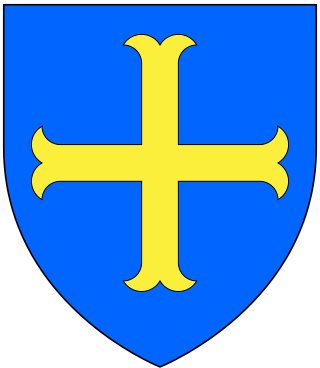
Molyneux is a French surname. The surname has been linked primarily to a large French family that settled in Lancashire, England. By the 14th century the Molyneux family had split into three main branches: the Lancashire line, who became the Earls of Sefton; the Nottingham line; and the Calais line, from those remaining in France. There was also a branch of the family who were Irish baronets.
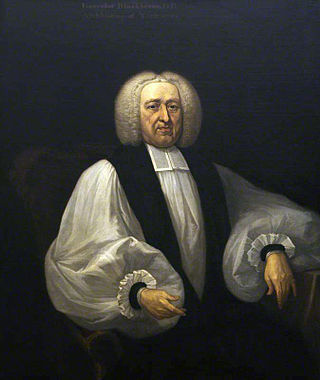
Lancelot Blackburne was an English clergyman, who became Archbishop of York, and – in popular belief – a pirate.
Robert Blackburne was a Recusant plotter and scion of one of the prominent Catholic families in Lancashire, England.
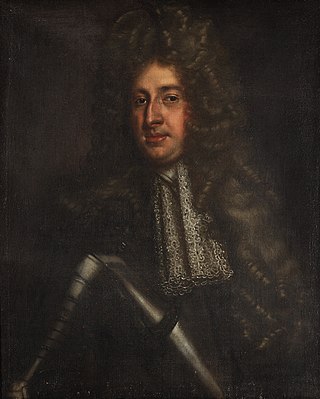
William Herbert, 2nd Marquess of Powis DL was an English peer and Jacobite supporter.

Charles Hamilton was an English 18th-century female husband. In 1746, Hamilton – while living as a man – married Mary Price. After Price reported she was suspicious of Hamilton's manhood to local authorities, Hamilton was prosecuted for vagrancy, and sentenced in 1746 to a public whipping in four towns and to six months imprisonment with hard labour.
The Jacobite uprising in Cornwall of 1715 was an unsuccessful Jacobite attempt at launching a rebellion against the Hanoverian regime which took place in the county of Cornwall.
Maurus Corker was an English Benedictine who was falsely accused and imprisoned as a result of the fabricated Popish Plot, but was acquitted of treason and eventually released.
Richard Gerard of Hilderstone, Staffordshire was a victim of the Popish Plot of the reign of Charles II of England. He was a Roman Catholic recusant landowner in Staffordshire, and came forward as a witness in the defence of the accused Catholic aristocrat, William Howard, 1st Viscount Stafford, which led to his own death in prison, although he had never been brought to trial.

William Barrow was an English Jesuit, executed as a result of the fictitious so-called Popish Plot, that between 1678 and 1681 gripped the Kingdoms of England and Scotland in anti-Catholic hysteria. Barrow is regarded as a martyr of the Roman Catholic church and was beatified in 1929.
Christopher Feake (1612–1683) was an English Independent minister and Fifth-monarchy man. He was imprisoned for maligning Oliver Cromwell in his preaching. He is a leading example of someone sharing both Leveller views and the millenarian approach of the Fifth Monarchists. His violence was exclusively verbal, but he wrote against the Quakers.
William Chaloner was a serial counterfeit coiner and confidence trickster, who was imprisoned in Newgate Prison several times and eventually proven guilty of high treason by Sir Isaac Newton, Warden of the Royal Mint. He was hanged on the gallows at Tyburn on 22 March 1699.
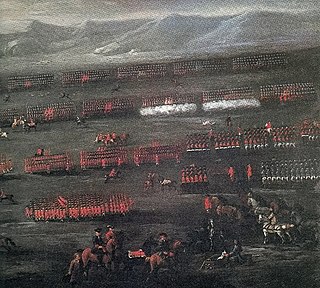
The Jacobite rising of 1715 was the attempt by James Edward Stuart to regain the thrones of England, Ireland and Scotland for the exiled Stuarts.
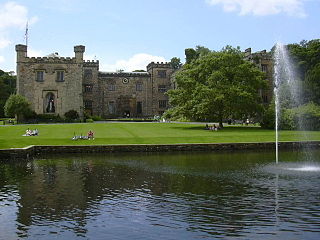
Francis Towneley was an English Catholic and supporter of the exiled House of Stuart or Jacobite.
Sir William Parkyns or Perkins (1649?–1696) was an English lawyer and Jacobite conspirator, executed for high treason.

George Barclay led an unsuccessful attempt to ambush and kill William III and II of England, Scotland and Ireland in early 1696.
Ambrose Rookwood (1664–1696) was an English Jacobite soldier, a conspirator and commander in the assassination plot of 1696 intended to kill William III of Great Britain. He was convicted and executed.

The Indemnity Act 1717 (3 Geo. 1. c. 19, also referred to as the Act of Grace and Free Pardon, is an Act of the Parliament of Great Britain.
Major John Bernardi was an English soldier, adventurer and Jacobite conspirator. Bernardi is best known for his involvement in an assassination plot against William III, and his subsequent forty-year imprisonment, without proper trial, in Newgate prison.
References
- ↑ Sources spell his surname variously as Blackbourn, Blackbourne, Blackburne or Blackburn.
- 1 2 Taaffe, Thomas (1907). "Robert Blackburne". CATHOLIC ENCYCLOPEDIA: Robert Blackburne. The Catholic Encyclopedia. Vol. 2. New York: Robert Appleton Company. Retrieved 12 September 2016.
- ↑ Publications of the Catholic Record Society, v20, p.223
- 1 2 Beamont (ed) The Jacobite trials in Manchester in 1694, p. lii
- ↑ Cobbett's State Trials, p. 779
- ↑ The Great Diurnal of Nicholas Blundell of Little Crosby, v 2, p. 208
- ↑ The History of the Pressyard, 1717, p.20. Of the five prisoners described, three are said to be Scottish and another ("the Major") is clearly Bernardi, suggesting the "Man of Pleasure" to be Blackbourn.
- ↑ History of the Pressyard, p.57
- ↑ Stephen, Leslie, ed. (1885). . Dictionary of National Biography . Vol. 04. London: Smith, Elder & Co.
- ↑ Notes and Queries, May 16, 1868, p.397
- ↑ The Memoirs of Captain Peter Drake, 1755, p.155